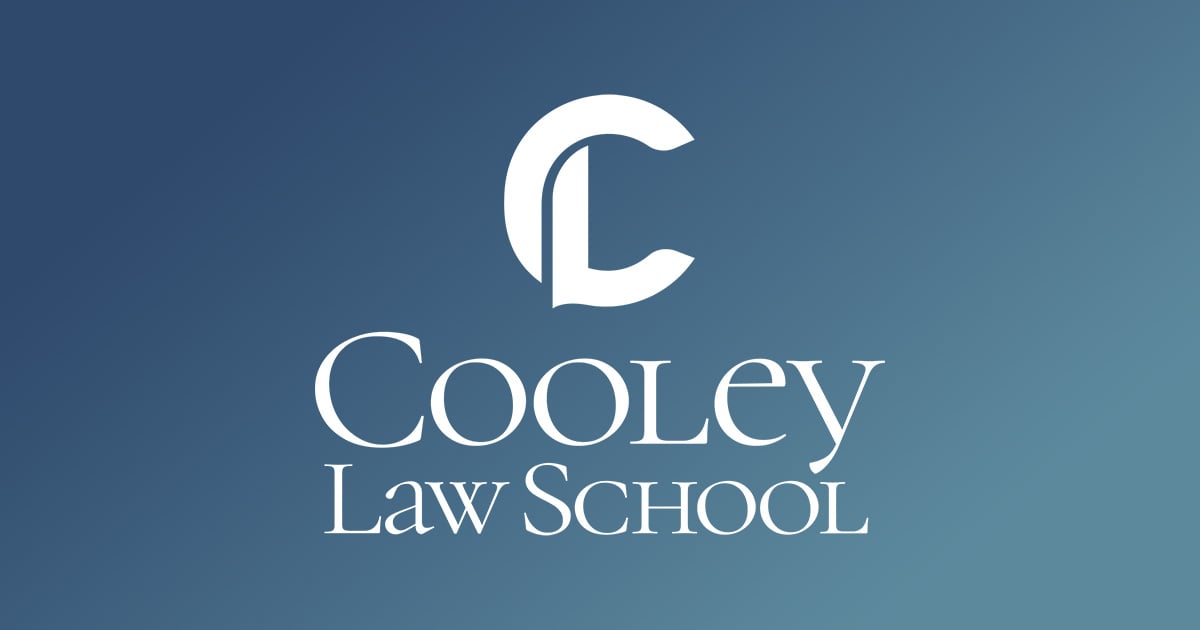Cooley Law School's Innocence Project Recognizes National Wrongful Conviction Day with Exoneree Event
LANSING, Mich. – On Thursday, Oct. 3, the Cooley Law School Innocence Project commemorated the 11th annual National Wrongful Conviction Day with a panel discussion. The event featured the stories of exonerees Kenneth Nixon and Darrell Siggers; and Duane Williams, whose conviction was vacated in 2024. Moderated by Cooley student Kara Rosengren, additional panelists included Innocence Project Director and Associate Dean Tracey Brame, and Innocence Project Managing Attorney Ann Garant. Wrongful Conviction Day began in 2013 as an effort of the Innocence Network, an affiliation of organizations dedicated to providing pro-bono legal and investigative services to individuals seeking to prove innocence of crimes for which they have been convicted, working to redress the causes of wrongful convictions, and supporting exonerees after they are freed. Nixon was represented by Cooley’s Innocence Project and exonerated in 2021, while Siggers was exonerated in 2017. Williams awaits a decision on whether his case will be retired. They remain active in the Innocence movement, working with those who remain incarcerated as well as other exonerees. Nixon has been instrumental in the vital work of the Organization of Exonerees, an exoneree support organization, and currently serves as the organization’s president. During the presentation, panelists discussed what is considered suspect-first investigations. “I was arrested before any investigation had taken place,” said Nixon. “My name came up, they immediately arrested me and then they sought to look for the evidence to prove I did it. I didn’t know what to do. My family didn’t know what to do. After the conviction, we were completely lost. Totally lost faith in the system.” While speaking to students, Nixon shared it was because of the Innocence Project he was able to participate in the presentation. “Because it was people that never gave up on us, we’re standing here today,” said Nixon. Brame spoke about the importance of working on behalf of the wrongfully convicted, stating: “If you look in the news in a given day, somewhere in some state, someone's being exonerated, which is encouraging that there's so much work being done in this space to get people out. It also lets you know how many people are still there waiting for help.” Additionally, Marla Mitchell-Cichon, former Cooley Innocence Project director, shared information about some of the work she is continuing on behalf of the law school. She gave an overview of the posthumous pardon she is working on in the case of Maurice Carter. In 1987, Carter was wrongfully convicted of a non-fatal shooting in Benton Harbor, Michigan. He was sentenced to life without parole. In 2004, his sentence was commuted due to his health, but his name was never cleared. Maurice died within three months of his release from prison. Established in 2001, the Cooley Law School Innocence Project is the only post-conviction DNA innocence organization in the state. Since its inception, the office has screened over 6,000 cases and is responsible for the exoneration of nine individuals: Kenneth Wyniemko (2003), Nathaniel Hatchett (2008), Donya Davis (2014), LeDura Watkins (2017), Corey McCall (2021), Nixon, Gilbert Poole (2021), George DeJesus (2022), and Louis Wright (2023). It also helped to exonerate Lacino Hamilton and Ramon Ward, both in 2020, Terance Calhoun in 2022, and Crystal Mulherin in 2024. Cooley’s Innocence Project is staffed by students who work under the supervision of attorneys. Those interested in donating and supporting the work of the Cooley Innocence Project can do so at cooley.edu/academics/experiential-learning/innocence-project. Cooley Law School was founded on a mission of equal access to a legal education and offers admission to a diverse group of qualified applicants across the country. Since the law school's founding in 1972, Cooley has provided a modern legal education to more than 21,000 graduates, teaching the practical skills necessary for a seamless transition from academia to the real world. An independent, non-profit law school, accredited by both the American Bar Association and the Higher Learning Commission of the North Central Association of Colleges and Schools, Cooley holds classes year-round at its Michigan and Florida campuses. Oct 10 2024
